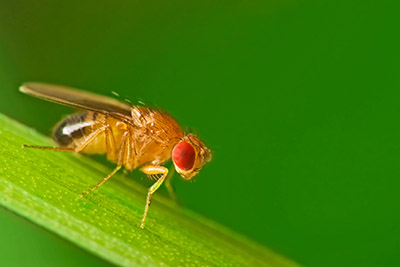On my last blog I told you guys about a good friend of small drugs, DMSO who has wonderful characteristics that make it such an irresistible small drug solvent. Although is a great friend of small drugs, some other of its characteristics make DMSO a toxic molecule to genetically compromise model organisms such is the case of drosophila ngly1 mutants. In an effort to better understand what makes our drosophila ngly1 mutants hypersensitive to DMSO we decided to test the DMSO tolerance on different drosophila mutants that had a pupal lethal phenotype just like ngly1, as well as other mutants that have embryonic and larval lethality phenotypes.
Our first stop was phenotyping each of the targeted drosophila mutants compared to wild type (Heterozygotes). Table 1.1 shows the different observable phenotypes for each of the mutants compare to wild type.
Table 1.1
| Mutant | Observable phenotype | Associated Cell disruption |
| ngly1 mutant | Pupal Lethal | N-glycosy |
| Rp138 mutant | Embryonic Lethal | Ribosome Protein mutant |
| EcR^112 mutant | Pupal Lethal | EcR isoforms mutant |
| S6K mutant | Pupal lethal | EcR isoforms mutant |
| trpml mutant | Pupal lethal | MLIV disease (Lysosomal storage disease) |
| npc1 mutant | Larval lethal | Niemann-Pick C Disease |
Our next stop was to conduct a vial DMSO study for different DMSO concentrations using Heterozygotes as our normal development control. Development delay or lethality was used as an indication of DMSO negative effect on our mutants.





Although our collected data suggests that DMSO sensitivity is specific to ngly1 mutant, we can not conclude that the absence or disruption of the pngl gene on fruit flies alone is the only factor that determines DMSO tolerance. However, it is safe to say that N-glycanase 1 enzyme does play a role in DMSO tolerance, but a more through study should be conducted to determine the specific of such role.
We will continue to phenotype and grow our DMSO tolerance study on different fruit flies mutants like is shown on Table 1.2, and continue sharing this information with you all through this blog. If you have some DMSO tolerance information on other mutants and would like to share, feel free to comment and together we can grow Table 1.2 faster and make it available to everyone.
Table 1.2
| Mutant | Observable phenotype | Associated Cell disruption | Highest DMSO Percentage tolerance on fruit flies |
| ngly1 mutant | Pupal Lethal | N-glycosy |
0.025% |
| Rp138 mutant | Embryonic Lethal | Ribosome Protein mutant | Between 0.1% and 0.25% |
| EcR^112 mutant | Pupal Lethal | EcR isoforms mutant | Between 0% and 0.1% |
| S6K mutant | Pupal lethal | EcR isoforms mutant | Between 0.1% and 0.25% |
| trpml mutant | Pupal lethal | MLIV disease (Lysosomal storage disease) | Between 0.1% and 0.50% |
| npc1 mutant | Larval lethal | Niemann-Pick C Disease | Between 0.33% and 0.50% |


